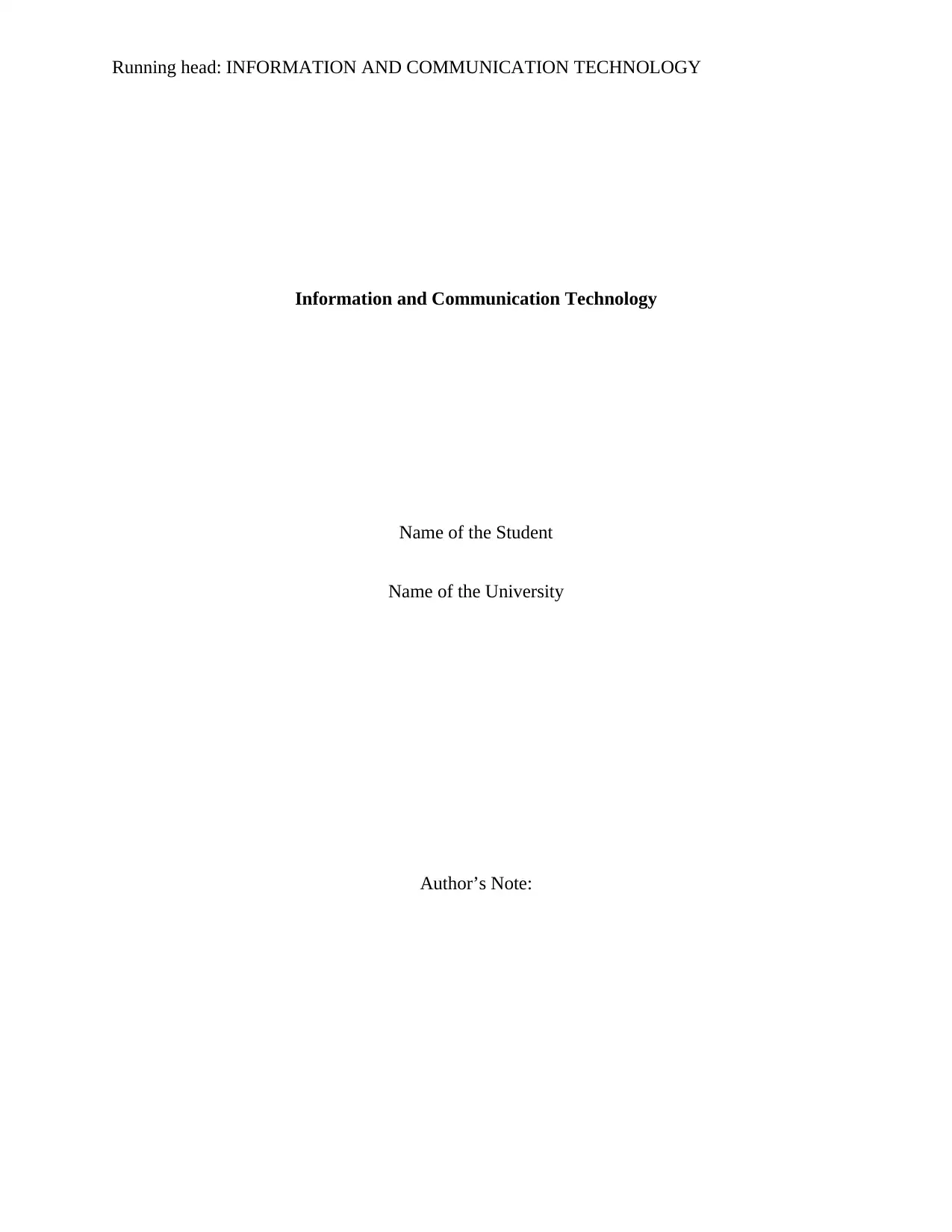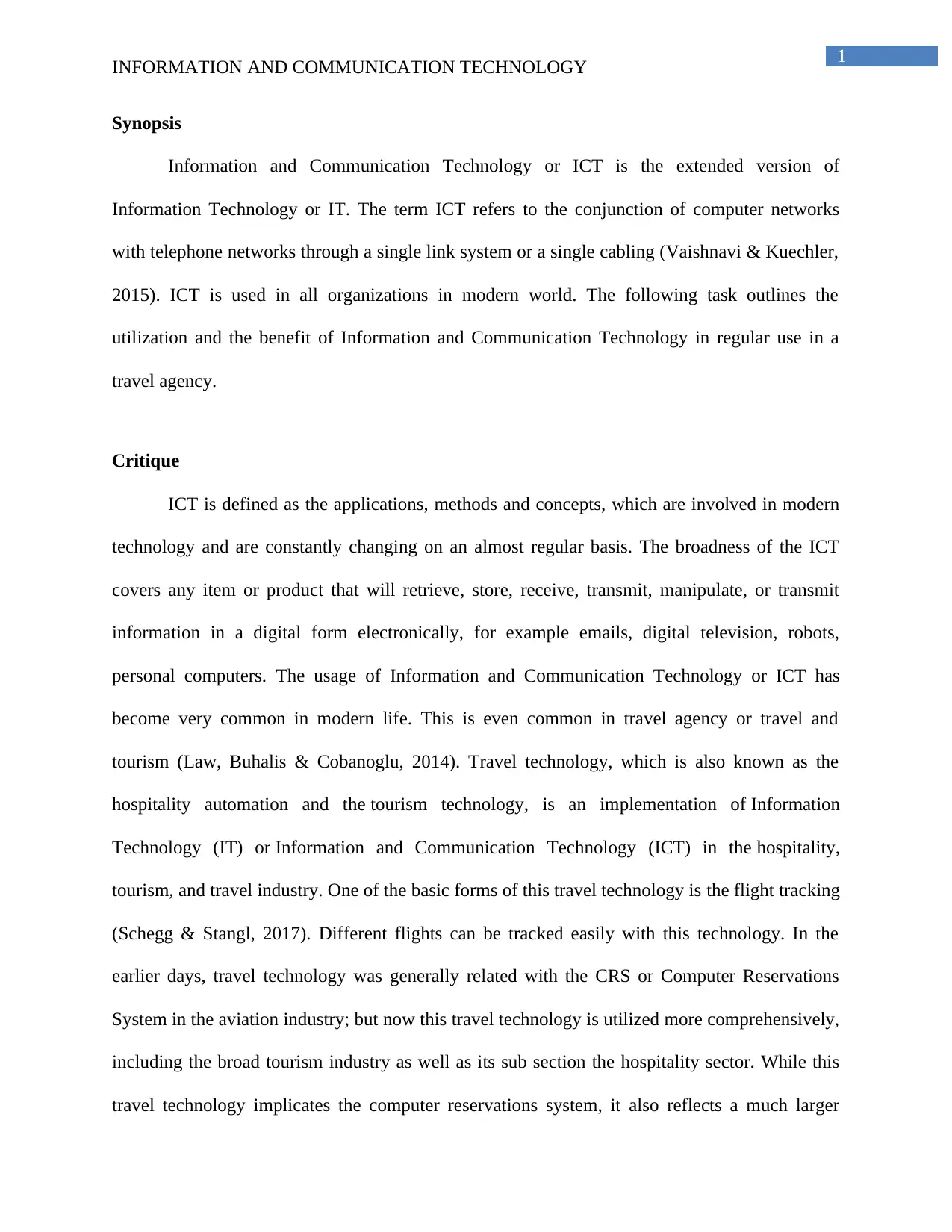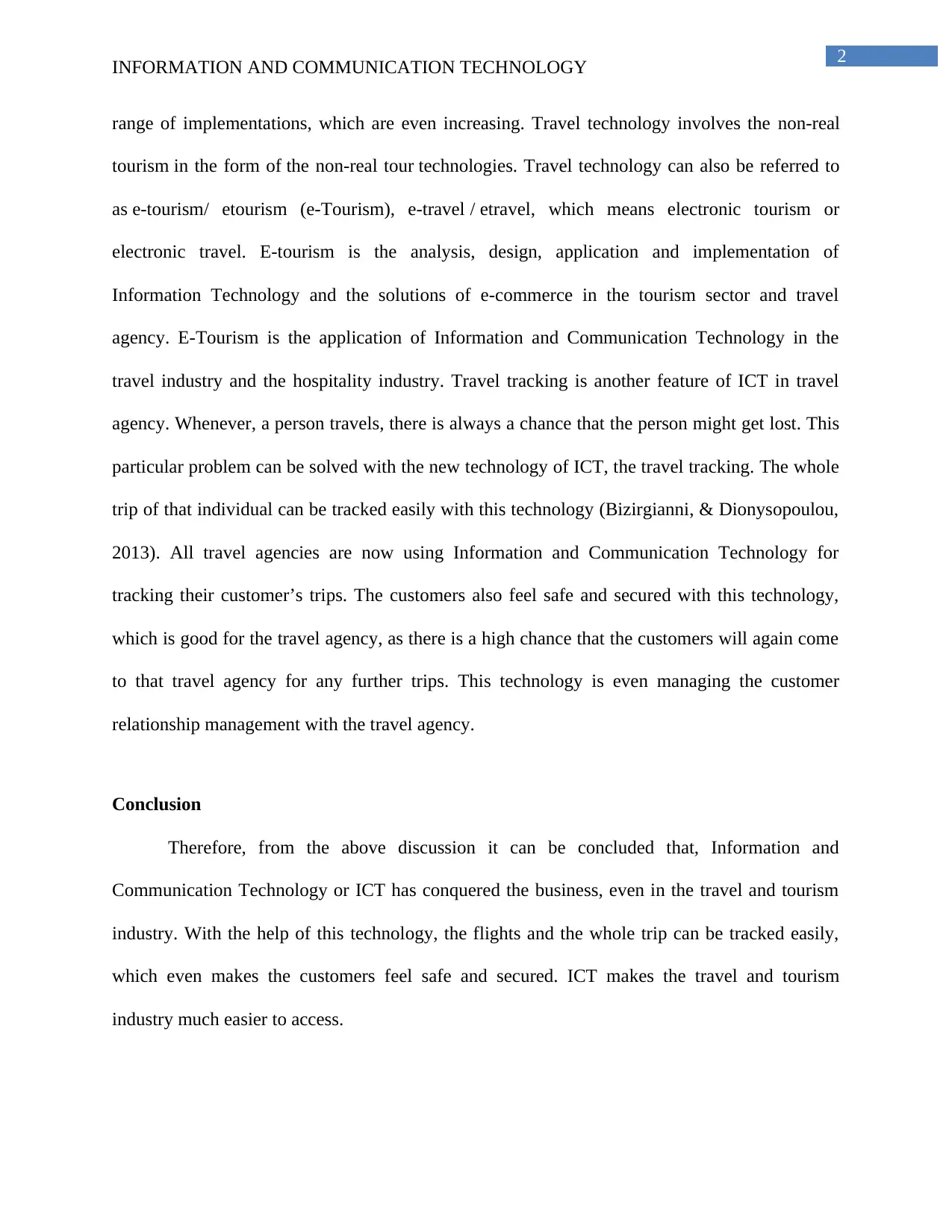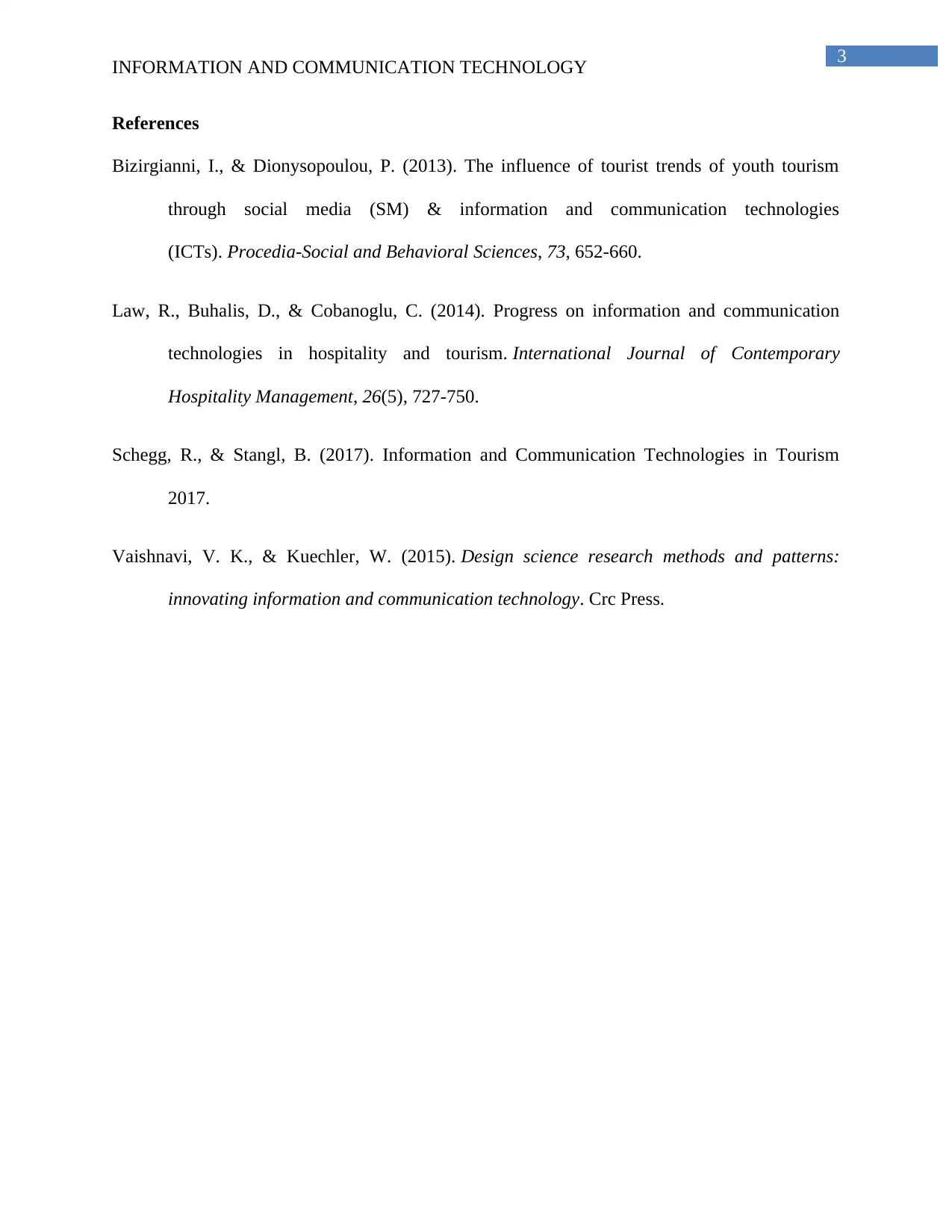ICT in Travel Agency: Benefits, Utilization, and Customer Management
VerifiedAdded on 2020/03/07
|4
|795
|77
Report
AI Summary
This report provides an overview of Information and Communication Technology (ICT) and its extensive application within the travel agency sector. It highlights the evolution from basic IT to comprehensive ICT solutions, emphasizing how ICT, including e-tourism, has become integral. The report details how ICT facilitates flight tracking, enhances customer relationship management, and improves overall trip management, ensuring customer safety and satisfaction. It also references several academic sources to support the claims. The conclusion reiterates the critical role of ICT in modernizing the travel and tourism industry, making it more accessible and efficient for both businesses and customers. This paper shows the importance of ICT in modern travel agencies, offering insights into how technology improves operations and customer experiences within the travel sector.
1 out of 4









![[object Object]](/_next/static/media/star-bottom.7253800d.svg)